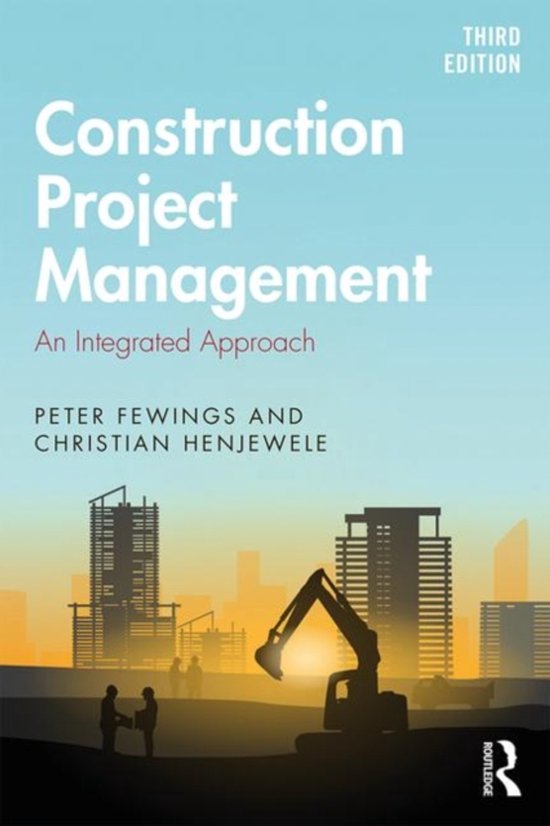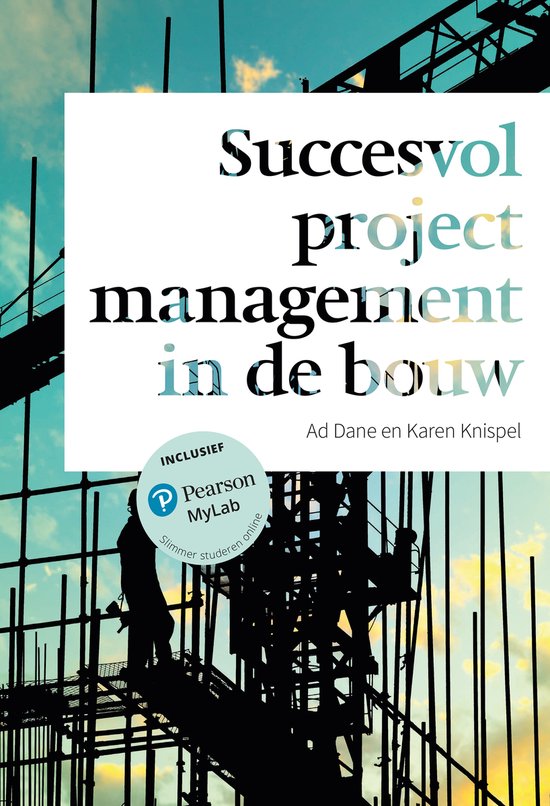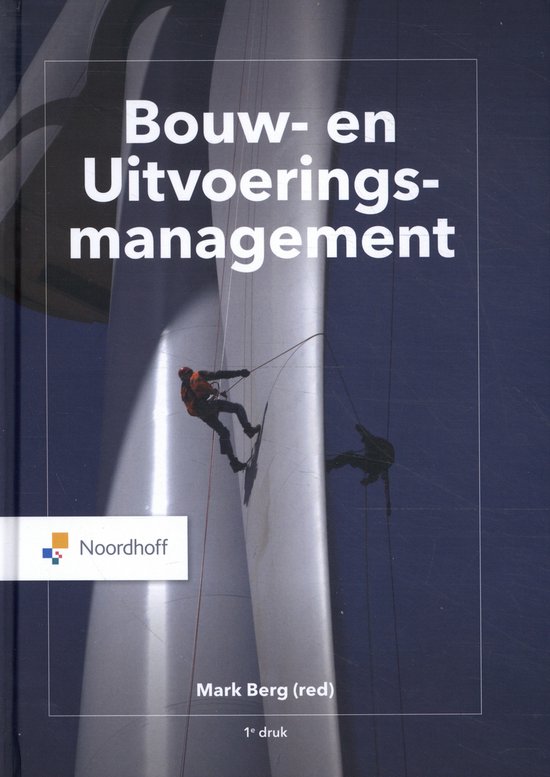Rbizo.com
Construction project management

Rubriek: Textual/Printed/Reference Materials - Boek
Prijs: € 42.99
Rating: 0/5
☆
☆
☆
☆
☆
Verzending:
Op voorraad. Voor 23:59 uur besteld, dinsdag in huis
Op voorraad. Voor 23:59 uur besteld, dinsdag in huis
Inhoudsopgave:
Omschrijving:
The third edition of Construction Project Management: An Integrated Approach is aimed at students and project managers from different disciplines and provides a broad and practical approach relevant to the whole project life cycle.
- Bekijk alle specificaties
Beste alternatieven voor u.

Succesvol projectmanagement in de bouw met MyLab NL
Rating: 5 / 5 | Prijs: € 44.95
Succesvol projectmanagement in de bouw geeft een introductie tot modern en succesvol projectmanagement het is een praktisch leermiddel dat de noodzakelijke kennis inzichten en vaardigheden aanreikt die nodig zijn om een project tot een goed einde te brengen talrijke voorbeelden uit de praktijk h
Op voorraad. Voor 23:59 uur besteld, dinsdag in huis .. MEER INFO

Bouw- en uitvoeringsmanagement
Rating: 0 / 5 | Prijs: € 59.95
Op voorraad. Voor 23:59 uur besteld, dinsdag in huis .. MEER INFO

The Project Manager's Checklist for Building Projects
Rating: 0 / 5 | Prijs: € 26.99
Verwacht over 4 weken .. MEER INFO
Product specificaties:
Taal: en
Uitvoering: Paperback
Oorspronkelijke releasedatum: 01 januari 2019
Aantal pagina's: 508
Illustraties: Nee
Hoofdauteur: Fewings, Peter
Co Auteur: Christian Henjewele
Hoofduitgeverij: Taylor & Francis
Fabrikantgegevens: De informatie van de fabrikant is momenteel niet beschikbaar.
Editie: 3
Extra groot lettertype: Nee
Product breedte: 174 mm
Product hoogte: 29 mm
Product lengte: 246 mm
Studieboek: Nee
Verpakking breedte: 174 mm
Verpakking hoogte: 29 mm
Verpakking lengte: 246 mm
Verpakkingsgewicht: 921 g
EAN: 9780815358657